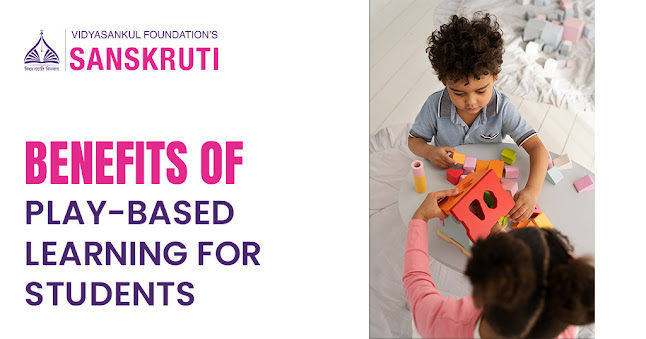The Benefits of Play-Based Learning for Students
Play-based learning is an approach to education that is gaining recognition for its positive impact on students. By integrating play into the learning process, students can develop a range of skills and knowledge in a more engaging and enjoyable way. In this blog post, we will explore the various benefits of play-based learning for students.
1. Enhanced Creativity and Imagination:
Play-based learning encourages students to use their imagination and creativity to explore new ideas and concepts. Through activities such as role-playing, storytelling, and creative arts, students can develop their imaginative thinking, which is essential for problem-solving and innovation in the future.
2. Improved Social Skills:
Engaging in play-based activities allows students to interact with their peers in a relaxed and enjoyable environment. This interaction helps them develop crucial social skills such as communication, cooperation, and conflict resolution. These skills are vital for building positive relationships and working effectively in a team.
3. Better Emotional Development:
Play-based learning provides students with opportunities to express their emotions and feelings in a safe and supportive setting. By engaging in imaginative play and storytelling, students can explore and understand their emotions, leading to better emotional intelligence and self-awareness.
4. Enhanced Cognitive Development:
Through play, students can develop essential cognitive skills such as problem-solving, critical thinking, and decision-making. Activities like building blocks, puzzles, and strategic games help students exercise their cognitive abilities in a fun and interactive manner.
5. Increased Motivation and Engagement:
Play-based learning makes the learning process more enjoyable and meaningful for students. When students are motivated and engaged, they are more likely to retain information and develop a positive attitude towards learning, leading to improved academic performance.
6. Physical Development:
Incorporating physical activities into play-based learning can contribute to students' physical development. Activities such as outdoor games, movement-based play, and sensory experiences help students develop their motor skills, coordination, and spatial awareness.
7. Long-Term Love for Learning:
By associating learning with fun and enjoyment, play-based learning can instill a lifelong love for learning in students. When learning feels like play, students are more likely to approach new challenges with curiosity and enthusiasm, fostering a positive attitude towards education.
Conclusion:
Play-based learning offers a multitude of benefits for students, encompassing various aspects of their development. By integrating play into the educational experience, educators can create a more holistic and engaging learning environment that nurtures students' creativity, social skills, emotional intelligence, and cognitive abilities. Embracing play-based learning can pave the way for a brighter and more fulfilling educational journey for students.
At Sanskruti World School, the best International School in Boisar, Palghar, we believe that there are incredible benefits of play-based learning for students. From fostering creativity to developing critical thinking skills, play-based learning is revolutionizing the way children learn. So, join us as we explore the incredible benefits of play-based learning and discover how Sanskruti World School is shaping the future of education. Let’s begin!

Comments
Post a Comment